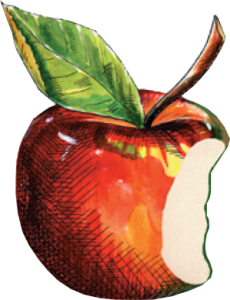words by women: virago press celebrates forty years

I was first introduced to Virago Press through my university studies of women’s literature. Founded in 1973 from the rise of the Women’s Liberation Movement, Virago had the aim of publishing books from women writers. This did not just include new works of literature written by women of the time, but also reissuing older publications written by women who had previously been forgotten, ignored, or denied a chance to be recognised as genuine, good works of literature because of the sheer fact that they had a female author. The works Virago published were not limited to female authors, though, as they also published works with feminist themes by male writers, such as the works of the great science fiction writer H.G. Wells.
Since Virago is celebrating its 40th birthday this year, it’s worth having a look at some of the amazing things this publishing house – and the people behind it – has achieved.
Virago was founded by Australian born University of Melbourne Arts graduate Carmen Callil, who has been living in London since 1960. Virago was to be ‘the first mass-market publisher for 52 per cent of the population – women. An exciting new imprint for both sexes in a changing world.’ The first book by Virago (then working out of Callil’s house in Cheyne Row, Chelsea, London) was Fenwomen by Mary Chamberlain.
From 1977, Virago was a fully independent feminist publishing house and in 1978, it launched its range of Modern Classics. This list began with Frost in May by Antonia White. This range of books was to become a Virago hallmark, which challenged the notion and definition of “classic” works of literature as women writers from the past were rediscovered, published and subsequently celebrated. This included Testament of Youth by Vera Brittain, which eventually became a television drama and is now a set text throughout school in the United Kingdom.
The Modern Classics list of authors was diverse, including the likes of George Eliot, Edith Wharton, Molly Keane and Angela Carter. Angela Carter had five of her works named as Virago Modern Classics, and also had her first non-fiction book, The Sadeian Woman, published. She was with Virago until her death in 1992.
The 1980s were a similarly busy decade for Virago. It saw the company publish H.G. Wells, George Glissing, George Bernard Shaw and George Meredith, all men writing about the so-called “new woman” of the late 1880s. It also saw the company move to the top floor of Oxford University Press in Mayfair and become a wholly owned subsidiary of the Chatto, Virago, Bradley Head and Cape Group. By 1987, Virago Management was bought out by a division of Random House publishing. The texts being published began to be recognised with awards, including the Fawcett Society prize in 1982 and 1983 for Union Street by Pat Barker and The Tidy House by Carolyn Steedman respectively. It also saw the publication of Their Eyes Were Watching God by Zora Neale Hurston, a text that has sold over a hundred thousand copies and is studied globally.
In 1995, faced with tough economic times, a downturn in the market and a smaller team, independence was harder to maintain. As a result, Virago saw the still-profitable company sold to Phillipa Harrison, CEO and Publisher of Little Brown (then owned by Time Warner). These tough economic times were not long lasting, and Virago bounced back in 1997 with Margaret Atwood’s Alias Grace, a spectacular success which saw the company’s highest trade turnover.
Margaret Atwood is arguably Virago’s greatest success. With her win of the Man Booker prize in 2000 for The Blind Assassin, Virago had published 25 of her works over 35 years and sold 3.5 million copies. For Virago’s 30th birthday in 2003, Atwood commemorated their achievements in a poem, which can be read in full on Virago’s website.
The 2000s also were a successful period for Virago: their Modern Classics turned 30; they acquired the complete list of Daphne du Maurier’s books; and they published Sarah Dunant’s The Birth of Venus in 2003, which launched an ongoing, successful writing career (Dunant’s latest book Blood and Beauty was published this year). Many more awards were received in this decade, including three Orange Prize shortlisted titles, with Waris Dirie winning the Mind Book of the Year in 2007 for Desert Flower, and Stella Duffy winning Stonewall Writer of the Year in 2008.
And in their fourth decade, Virago has won Editor and Imprint of the Year at the National Book Awards in Britain in 2010, published The Paris Wife by Paula McLain, and welcomed Mary Renault to the Virago Modern Classics series.
To celebrate their 40th birthday, Virago has released a free ebook containing forty pieces of writing by forty of its authors, inspired by the number forty. The publisher has said that ‘sometimes we publish to entertain, sometimes we publish to give readers the sheer pleasure of beautiful writing, sometimes we publish to change the world…[the free ebook is intended as a] thankyou to everyone who has been a part of the Virago family over the years.’ It will certainly be worth watching to see just what else Virago can achieve for women’s literature in the years to come, as they have already achieved so much.

